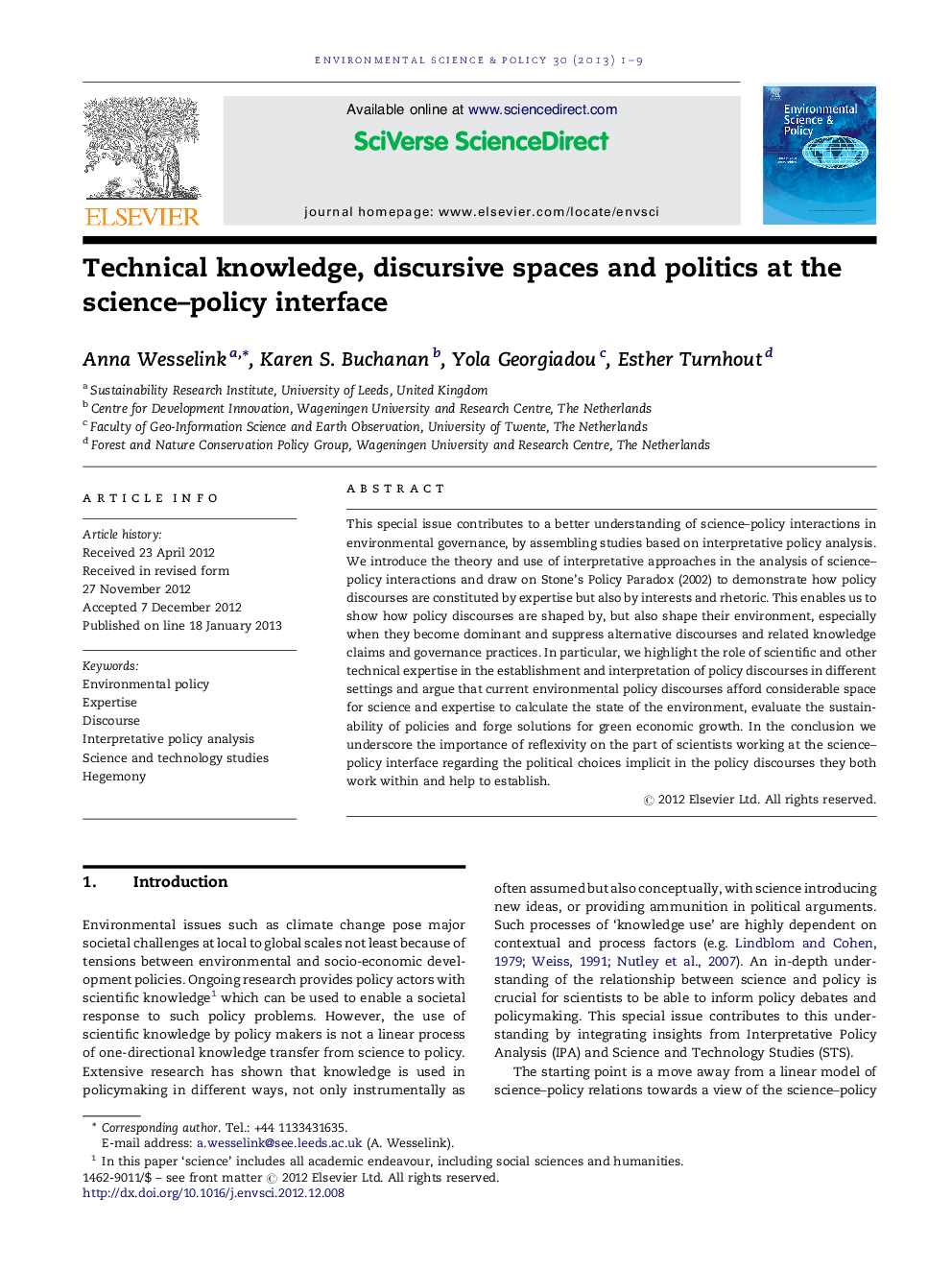| Article ID | Journal | Published Year | Pages | File Type |
|---|---|---|---|---|
| 1053693 | Environmental Science & Policy | 2013 | 9 Pages |
This special issue contributes to a better understanding of science–policy interactions in environmental governance, by assembling studies based on interpretative policy analysis. We introduce the theory and use of interpretative approaches in the analysis of science–policy interactions and draw on Stone's Policy Paradox (2002) to demonstrate how policy discourses are constituted by expertise but also by interests and rhetoric. This enables us to show how policy discourses are shaped by, but also shape their environment, especially when they become dominant and suppress alternative discourses and related knowledge claims and governance practices. In particular, we highlight the role of scientific and other technical expertise in the establishment and interpretation of policy discourses in different settings and argue that current environmental policy discourses afford considerable space for science and expertise to calculate the state of the environment, evaluate the sustainability of policies and forge solutions for green economic growth. In the conclusion we underscore the importance of reflexivity on the part of scientists working at the science–policy interface regarding the political choices implicit in the policy discourses they both work within and help to establish.
► Theory of interpretative approaches in analysis of science–policy interactions. ► Policy discourses are constituted by expertise, but also interests and rhetoric. ► Policy discourses can become dominant and suppress alternative discourses. ► Importance of reflexivity on the part of scientists regarding political choices.
